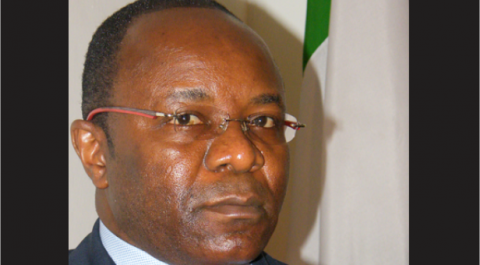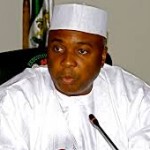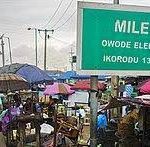Senate, Reps Collaborate on Passage of Harmonized Version of PIB
Latest Headlines, News Monday, March 21st, 2016
*To be Laid at Both Chambers next Week
Ayodele Afolabi, Abuja
Hope rises for possible passage of the Petroleum Industry Bill ( PIB), as the Senate President, Bukola Saraki has assured that the current 8th National Assembly , after consideration of the harmonized version of the bill , slated for laying at both chambers next week, would pass it into law.
Saraki made the disclosure yesterday in his remarks at the ongoing National Assembly Business Environment Roundtable.
According to him, the Senate and House of Representatives had already resolved to do a joint work on the Bill.
He said: “The National Assembly, the Senate and the House of Representatives are working very closely together. As part of this commitment we would all see next week when we lay down the Petroleum Industry Bill; you will see that the bill we are going to lay in each House is the same. We are going to lay the same version in the senate and the House of Representatives because that is going to be the first time we are open to our words.”
It was learnt that the new version of the PIB is being sponsored by the leadership of both chambers of the National Assembly.
The Senate President lamented the harsh economic environment in the country pointing out that most of the laws regulating the business environment were obsolete.
Contributing to discussions at the event, head of Economic Growth, DFID, Nigeria, Simon Kenny, declared that a major economic problem facing the country was its over reliance on the already dwindling oil revenue.
According to him, the fall in oil price provided a good opportunity to diversify its economy resources.
Kenny said: “If you look at the demands of oil produced in Nigeria and the low price of oil, and if you divide that by the vast numbers of people and population of Nigeria, there is only around $200 of oil per capital per year in the country. There is no way even the rising price of oil can raise Nigeria to anything above a middle income country.
And I know that the aspirations of Nigeria have gone beyond that to become a high level income country. So, oil revenue has dropped and this is the reality you are facing at the moment. But the low prices of oil has offered a perfect opportunity for Nigeria to diversify the economy, to increase investment and to make industries – from agriculture to manufacturing and the services sector.”
He also urged the Federal government to encourage import competitiveness as opposed to import substitution adding that the private sector should also be encouraged to boost the competition.
“I often hear the term import substitution as a policy for Nigerian government to help drive local industries. You need to replace the word import substitution by import competitiveness. And the role of the private sector to help increase that competitiveness.
It’s a fantastic opportunity to bring the private sector together with the government. The executive is there to implement policies but the legislature has a key role in ensuring that the right legal framework is in place”, he added.
In his own submission, the chairman, Tony Elumelu Foundation, Tony Elumelu, stressed the urgent need for the National Assembly to review the laws that regulate the conduct of businesses in the Country.
“This meeting is an effort and is humble acknowledgement by our leaders that our laws are not perfect; that we need to review, amend and enhance many of them.
“The important role of government is not to provide employment for everyone but to create, sustain and secure an enabling environment for citizens who dependently create their own job as their success using their own talents. The private sector is the engine room for economic growth in Nigeria and indeed anywhere else”, he said.
Participants at the the round table discussion were drawn from the executive, legislature and the private sector coming together to seek workable solutions to the nation,’s economic problems.
The session commenced deliberations on findings and recommendations of the Business Environment Legislative Review Report submitted to the leadership of the National Assembly last month.
The roundtable was to provide a framework for the assessment and improvement of legislation and policy affecting businesses in Nigeria and will direct the deliberations at the first NASSBER event.
The discussions were centred on broad areas like Competition; Doing Business; Infrastructure (Public-Private Partnerships, Rail, Maritime and Roads); Finance and Investment; Intellectual Property and e-business; and taxation amongst others.
A further aim of the roundtable discussion, according to Saraki is to provide a platform for ensuring that through research and advocacy, the Private Sector, Legislature and Executive engage to promote relevant and sound public policy.
“The National Assembly Business Environment Roundtable hopes to achieve a number of specific objectives, including: Legislative reform as it pertains to improving the business environment in Nigeria; Strengthening the foundation of the Nigerian Economy by ensuring smart and effective regulation.
“Increasing competitiveness and private sector investment; Opening and expanding markets through infrastructure development; and, Creating Engagement, Advocacy and Consultation across key stakeholders”, he explained.
But the document may not be laid next week as declared by the Senate President as both chambers are billed to embark on two -week Easter recess on Thursday, this week.
Related Posts
Short URL: https://www.africanexaminer.com/?p=31128





















